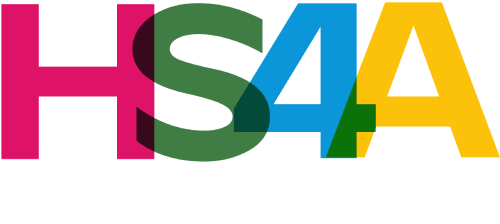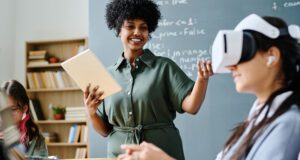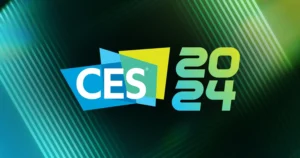The Future of Education: Integrating Science, Technology, Arts and Values
- By Human Security For All
In June, The World Academy of Art and Science (WAAS) was invited to attend the Global Minded Annual Conference in Denver, Colorado, to discuss how human security, AI and STEAM (science, technology, engineering, art and math) can help build a brighter, more resilient future for students.
During a panel titled “STEAM and the Future of Education: Integrating Science, Technology, Arts and Values” speakers discuss the importance of integrating knowledge and collaboration for human development, particularly in securing human needs and aspirations. The panel included experts from various fields and countries (Egypt, USA, Portugal, and Montenegro), and emphasized the need for human security, education, and the interconnectedness of art, science, technology, engineering, art and mathematics (STEAM).
Speakers were moderated by Mila Popovich, Director General, Directorate for Interculturalism for Government of Montenegro, and a Fellow and trustee of WAAS. WAAS was founded in 1960 by notable figures such as Albert Einstein, Bertrand Russell, and Robert Oppenheimer, who recognized the need for knowledge integration in a polarized world. Popovich stressed the need for human security for all, which is an ongoing program of the Academy.
Fadwa El Guindi, an Egyptian-American anthropologist and former professor of anthropology at Qatar University shared insights on the interconnectedness of art, humanities, and science, using historical examples of polymaths such as Leonardo da Vinci and Albert Einstein. “While not everyone possesses the same level of genius as these figures, the human brain is the common source of many abilities,” she says. Guindi reflects on the Arab world’s golden age, where learning centers like the House of Wisdom in Baghdad (also known as the Grand Library of Baghdad) brought together scholars from diverse disciplines, allowing them to share knowledge without merging their fields.
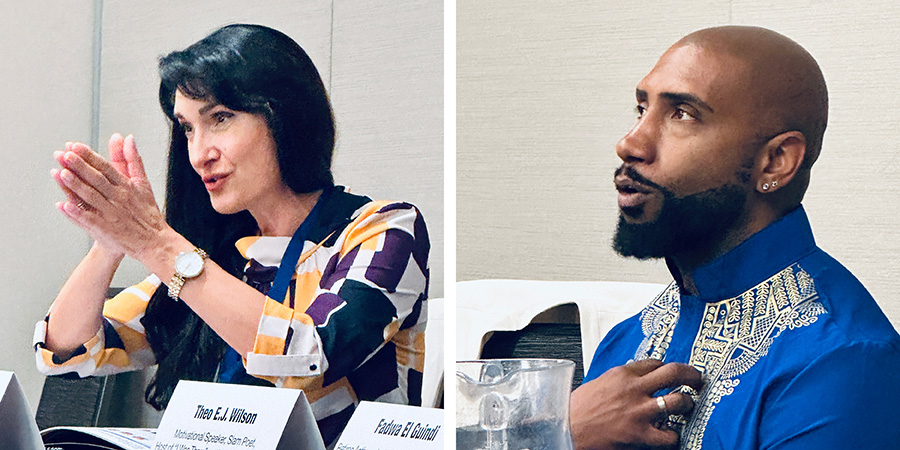
Richard Plotka, Director of Information Technology and Web Science program at Rensselaer Polytechnic Institute (RPI) , who has a diverse background in engineering, business, and spirituality, emphasized the need for universities to provide general knowledge about humans to engineers and scientists, who may not have a deep understanding of human nature. Plotka, who is now a professor at RPI, shared his personal experience of choosing RPI over MIT because of its strong focus on the humanities and his personal commitment to incorporating ethics into education and technology. “The RPI information technology program, where I work, has a motto of ‘why not change the world’ and emphasizes experiential learning with a social consciousness,” says Plotka. He believes strongly that the arts and humanities are essential in education, to maintain a balance and ensure that students look at their work as more than just numbers or a “job.”
Goncalo Martins, Professor of Electrical Engineering at the University of Denver, discussed the importance of awakening new generations to the need for change in technology and society. He shared his personal experience as an engineer and educator, expressing concern about the education system’s focus on adding new technologies without considering the potential distractions from core learning. “There is great value in understanding the historical context of knowledge and encouraging a holistic approach to education — one that incorporates the arts, music, and other subjects beyond the classroom,” he says. He also highlights the need for human connection in education and the importance of lifetime learning.
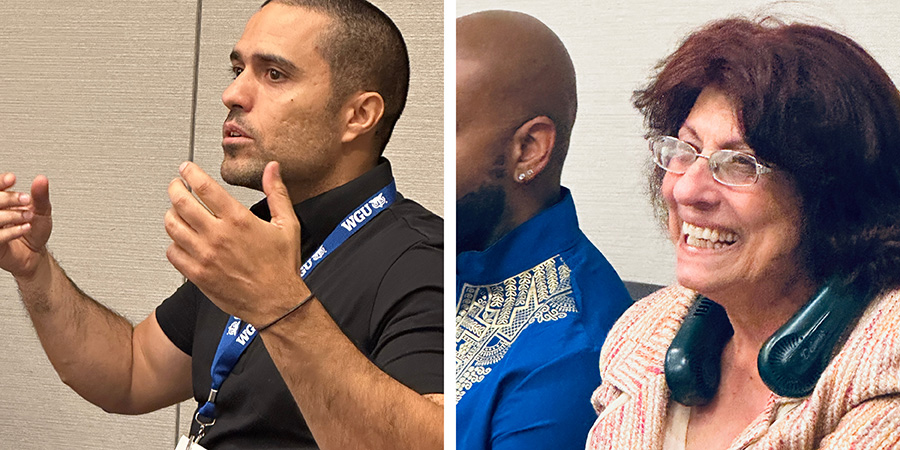
El Guindi added that research and teaching are not mutually exclusive, and that great thinkers like Einstein were not working alone but in collaboration with others.
Theo EJ Wilson, a Denver-based speaker, activist, and poet spoke about the interconnectedness of science and spirituality, and his role as a spoken word poet to make visible the invisible and give voice to pain and suffering. Wilson reflected on his personal experiences with trauma and how he used his creative skills to turn pain into purpose.
“The root causes of insecurity are not animals like tigers or lions, but rather the power structures developed through colonialism, imperialism, slavery, and genocide,” says Wilson. He believes that his job is to inspire and make people aware of these issues while they work towards changing the world. He also discusses the convergence of existential risks and advanced technologies, such as artificial intelligence and synthetic biology, which require a new social contract and shared values to ensure they are used to mitigate risks rather than create new ones.
El Guindi asked attendees to consider a global perspective as we look towards the future of learning and work. “The role of STEM education and technology in the Western world should not be accepted blindly,” she argues. “Many countries and peoples around the globe have different priorities and needs. The historical exploitation and colonization of resources and souls, has given rise to the need for decolonization and the contextualization of educational systems.” El Guindi continued with a call to recognize the importance of understanding power dynamics in the world and the need for demands, and sometimes even collision courses, to bring about change. She referenced historical examples of power and exploitation, such as the Congo, the transatlantic slave trade, and current issues in places such as Gaza and Sudan that she feels are not being adequately addressed.
“We need to acknowledge and address the exploitation of resources and people in other parts of the world, particularly in Africa,” says El Guindi. “And the consequences of ignoring these issues.” She highlighted the need for a multipolar world where all nations can thrive, and the role of education in raising awareness and empowering young people to make changes from the grassroots level.
Goncalo Martins, Professor of Electrical Engineering at the University of Denver expressed his own struggle with finding the balance between teaching technical skills and social responsibility in the classroom. He acknowledges that no single educator can solve these complex issues alone but highlighted the importance of addressing them within the education sector.
“It’s important how we teach STEM subjects rather than just what we teach,” says Martins. He recounts how gaining historical context about electrical engineering and its pioneers gave him more perspective and allowed him to teach in a way that engages students and encourages them to think outside the box. He discussed the challenges of the current education system, which prioritizes research over teaching and creates gaps between a faculty focused on research and those focused on teaching. “We need to address these issues in order to effectively change and improve STEM education,” he concludes.
Wilson emphasizes that before delving into science, technology, engineering, art and mathematics, individuals must understand their inner universe and emotions. He shared how rap music and self-expression can be a starting point for this exploration. Art is the lesser-known part of STEAM education, and Wilson cites an example of a collaborative project between artists and scientists, that combines machine learning with musicians, such as recent experimentations by jazz pioneer Herbie Hancock. “The overall goal is to create conditions for individuals and communities to design their own destinies,” says Wilson.
Recent initiatives at Plotka’s Rensselaer Polytechnic Institute have also strived to integrate arts and technology. One project involves developing a performance center with advanced electronics and surround sound technology for students to present demonstrations. Another idea being explored is the intersection of quantum computing and music. RPI has also invested significantly in the arts and humanities, with a cutting-edge gaming program and a multidisciplinary program that combines technology and arts to solve real-world problems.
In conclusion, the panelists highlighted the importance of communication and collaboration between artists and engineers and the need for success among graduates in product management roles. They also argued for increased funding for STEAM programs, which have so far proven to be successful within private institutions.

The Human Security For All (HS4A) is a global campaign led by the United Nations Trust Fund for Human Security and the World Academy of Art and Science in partnership with a broad constituent of entities and citizens like you. Our aim is to Promote human security among networks of people who play key roles in adopting new ideas and translating them into action – policymakers, youth leaders, private sector innovators and financiers as well as educators, scientists, artists and more.
